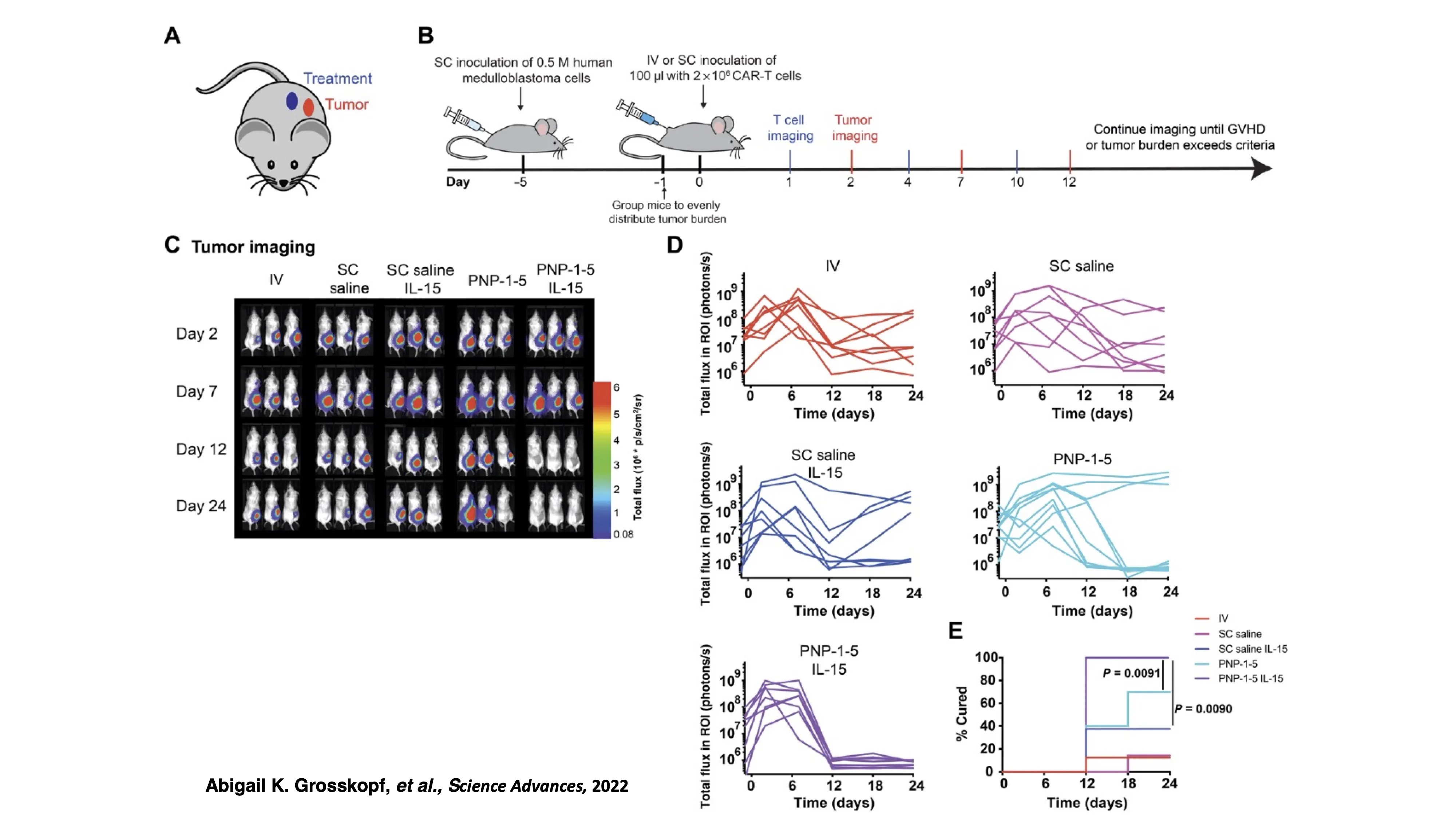CAR-T cell therapy is effective in treating blood cancers and exhibits limited activity against solid tumors. The microenvironment in tumors is usually immunosuppressive and challenges the CAR-T cells to infiltrate and expand.
To overcome this difficulty, scientists explore several cell delivery methods for CAR-T treatment of solid tumors, including biomaterial scaffolds. However, the manufacture of biomaterial scaffolds is complicated and is not universal for different solid tumors. Another challenge is that the activation of CAR-T cells requires high cytokine concentrations, and the locoregional delivery of cytokines eliminates easily due to their low molecular weights.

The researchers in the Department of Chemical Engineering of Stanford University report a new approach that utilizes injectable hydrogels to deliver CAR-T cells together with cytokines. Their previous study showed that polymers of polymer-nanoparticle (PNP) hydrogels are small enough to retain the cytokines while still enabling them to sustain the growth of CAR-T cells. Appel’s research team tested different proportions of polymers and nanoparticles, PNP-1-1, PNP-1-5, and PNP-2-10, where the first number represents the weight % (wt%) of the polymer and the second number represents the wt% of nanoparticles. And the CAR-T cells in PNP-1-5 hydrogel formulation showed the most effective cell viability and proliferation.

The authors further investigated the treatment of CAR-T cells together with PNP-1-5 hydrogels in solid tumors with or without IL-15 in vivo. The CAR-T cell-loaded PNP hydrogels were injected into the proximal or distal side of the tumors. The results showed that co-delivery of CAR-T cells with stimulatory cytokines in PNP-1-5 hydrogels improved the treatment, and the mice were completed cured. In addition, the authors observed significant T cell expansion in mice when PNP-1-5 hydrogels and IL-15 were co-delivery. The ex vivo analysis reveals the increased CAR expression, the greater proportions of CD8+ cells, and a larger percentage of T stem cell memory cells. Overall, the results demonstrated that the PNP hydrogels could entrap the stimulated cytokines and sustain CAR-T cells’ long-term expansion and viability.
Original article: Delivery of CAR-T cells in a transient injectable stimulatory hydrogel niche improves treatment of solid tumors
